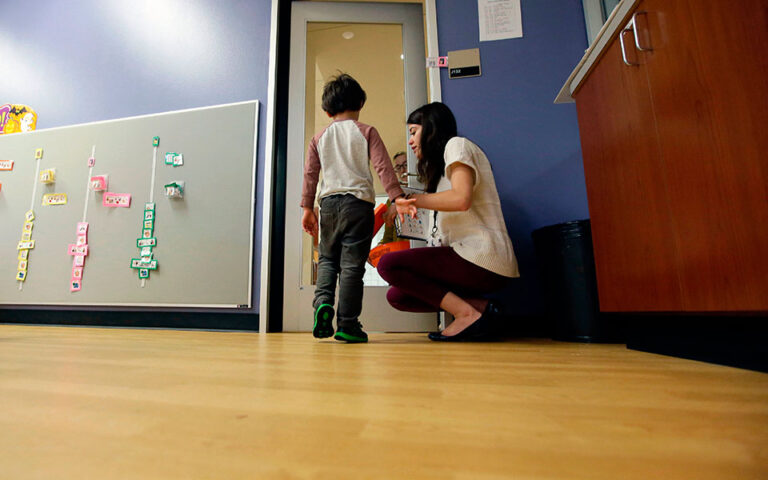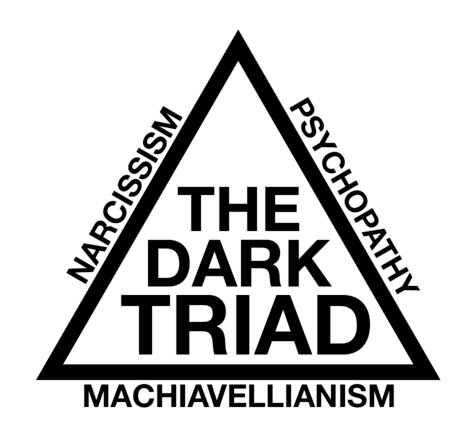Σήμερα θα σας ζητήσω να ταξιδέψουμε στο χρόνο. Να ζήσουμε για λίγο μέσα σε μία ουτοπία. Να φανταστούμε πώς θα ήταν η ζωή σε μία πόλη του μέλλοντος όπου όλοι οι κάτοικοί της είναι νευροδιαφορετικοί!

Σήμερα θα σας ζητήσω να ταξιδέψουμε στο χρόνο. Να ζήσουμε για λίγο μέσα σε μία ουτοπία. Να φανταστούμε πώς θα ήταν η ζωή σε μία πόλη του μέλλοντος όπου όλοι οι κάτοικοί της είναι νευροδιαφορετικοί!
Όλος ο πληθυσμός είναι νευροαποκλίνοντα άτομα. Όλοι έχουν διάγνωση Διαταραχής Αυτιστικού Φάσματος.
Το έχουμε;.. Πάμε μαζί…
Τόπος: οποιαδήποτε πόλη της γης.
Χρόνος: 2222 μ.Χ.
Για να δούμε… Κάποια σκόρπια στοιχεία που, όμως, θα επιχειρήσουν να βάλουν τη σκέψη μας σε μία σειρά.
Όλοι λοιπόν θα έχουν προσωπικό αριθμό ΑΦΠ (Ανάλυση Φασματικού Προφίλ), κάτι σαν το σημερινό ΑΜΚΑ (αν το θέλετε international θα το λέγαμε SPA Spectrum Profile Analysis).
Αυτό θα τοποθετεί κάθε άτομο στο φάσμα μεν, αναλύοντας δε σε κάθε τομέα τα επιμέρους στοιχεία που ορίζουν την δομή της προσωπικότητας και της μοναδικής του ψυχοσύνθεσης πχ. Έχει λόγο η όχι, έχει ενσυναίσθηση και πόσο, έχει αισθητηριακά θέματα και ποια, έχει κοινωνικές δυσκολίες και πώς τις ορίζει ο ίδιος, έχει η όχι ελλείμματα στην αντίληψη/επικοινωνία, είναι χαρισματικός ή όχι, έχει επιληψία ή όχι κ.λ.π. Αυτός ο ΑΦΠ θα ακολουθεί το άτομο στην σχολική του ζωή αλλά και στο εργασιακό του περιβάλλον, όταν αυτό ενηλικιωθεί και τελειώσουν οι σπουδές ή η εκπαίδευσή του.
Στην εργασία τώρα, για την οποία δεν χρειάζεται να ειπωθεί εδώ ότι όλοι θα έχουν ισότιμες ευκαιρίες πρόσβασης, θα έχει θεσπιστεί υποχρεωτικό διάλειμμα αυτορρύθμισης π.χ. μισή ώρα ένα τετράωρο. Θα το λένε steaming break και θα θεωρείται απαραίτητη προϋπόθεση για να μπορέσει το αυτιστικό άτομο να αποδώσει το καλύτερο δυνατό για τις υπόλοιπες εργάσιμες ώρες. Επίσης προαιρετικά θα παρέχεται η δυνατότητα απόσυρσης σε κάποιο ήσυχο χώρο, εντός του κτιρίου που εργάζεται ο αυτιστικός, ένα αισθητηριακά φιλικό quiet room, ειδικά διαμορφωμένο για να τον βοηθάει να ηρεμεί, να απομονώνεται, να χαλαρώνει, αν κρίνει ο ίδιος ότι το χρειάζεται.
Αντίστοιχα quiet rooms θα υπάρχουν σε κάθε μέρος όπου μπορεί να υπάρξει συνωστισμός, όπως σε σχολεία, σε εκπαιδευτήρια, σε εμπορικά κέντρα, σε καταστήματα εστίασης και σε χώρους διασκέδασης. Εναλλακτικά, και αν δεν υπάρχει αρκετός χώρος, θα παρέχεται υπηρεσία ενός kit αισθητηριακής αποσύνδεσης π.χ. ακουστικά που απομονώνουν τους εξωτερικούς θορύβους και καλύμματα για τα μάτια (ξέρετε στις υπερατλαντικές πτήσεις που σου δίνουν ωτασπίδες και καλύμματα για τα μάτια, για να μπορέσεις να κοιμηθείς ενώ είναι όλα τα φώτα ανοιχτά; Ε… φανταστείτε κάτι ανάλογο).
Σίγουρα όλα τα καταστήματα εστίασης, όπως εστιατόρια, ταβέρνες ρακάδικα, καντίνες, coffee shops, όλα, μα όλα ανεξαιρέτως, θα έχουν οπτικοποιημένα μενού με ευκρινείς φωτογραφίες αλλά και με σήμανση για οποιαδήποτε έξτρα επιλογή π.χ. χωρίς σάλτσα ή με καστανή ζάχαρη ή με γάλα αμυγδάλου ή χωριστά κάθε βρώσιμο είδος ή το τυρί να μην ακουμπάει στην πατάτα άνθρωπέ μου!
Στα πιο βασικά τώρα… Στα σχολεία δεν θα υπήρχε bullying, ας πούμε… Ο όρος θα είχε εκλείψει προ πολλού.
Σε έναν κόσμο νευροδιαφορετικών όλοι είναι απολύτως αποδεκτοί, όλοι είναι κομμάτι του συνόλου, ισότιμο, πολύτιμο και απολαμβάνει την ίδια εκτίμηση.
Οι κυβερνήτες τηρούν κάθε προεκλογική υπόσχεση! Διαφάνεια και σταθερότητα απόψεων στο κοινοβούλιο! Καμία απόκλιση σε προεξαγγελμένα προγράμματα, κανένα παραθυράκι σε νόμους, πουθενά μικρά γράμματα, πουθενά «ναι μεν, αλλά…». Αντίθετα, παντού σαφείς και ξεκάθαροι κανόνες/νόμοι που ισχύουν για όλους.
Ειλικρινείς πολιτικοί… για φαντάσου! Όχι καθυστερήσεις σε προθεσμίες, όχι ημιτελή έργα, όλα θα ολοκληρώνονται και θα ελέγχονται ξανά και ξανά, γιατί πρέπει να λειτουργούν πάντα με τον τρόπο που σχεδιάστηκαν και να αποδίδουν τα μέγιστα.
Στη δουλειά καμιά αιφνίδια αλλαγή προγράμματος.. το στοιχείο της έκπληξης θα είναι είδος προς εξαφάνιση.
Ξέχασα κάτι βασικό.. Κάθε αυτιστικός που έχει υψηλό νοητικό δυναμικό θα έχει υπό την προστασία του έναν «αδερφό» με περισσότερες αντικειμενικές δυσκολίες π.χ. έναν NVB (Non Verbal Brother) ή μία MDS (Multiple Diagnosis Sister).
Το αυτιστικό άτομο με τα μεγαλύτερα θέματα και δυσκολίες στην έκφραση, στην κίνηση, στην επικοινωνία, στον προσανατολισμό, θα έχει τον προσωπικό του μέντορα-βοηθό-φίλο, ένα άτομο που θα είναι υπεύθυνο να ανακαλύψει ακριβώς τα θετικά στοιχεία του πρώτου και να τα εκμεταλλευτεί προς όφελος του λιγότερου ευνοημένου από το δίδυμο νευροαποκλινόντων ατόμων.
Ένας κόσμος που η αλήθεια, η συνέπεια, η ισοτιμία και ο αλτρουισμός θα είναι πανανθρώπινες αξίες και ορόσημα που θα διαμορφώνουν κοινωνικούς ιστούς…
Ένας κόσμος που, αν αναλογιστούμε ότι την τελευταία εικοσαετία οι διαγνώσεις στο αυτιστικό φάσμα είχαν μια αύξηση 600%, ίσως δεν είναι και τόσο μακρινός.
Υ.Γ. Οι θεωρίες ότι οι αυτιστικοί είναι ένα είδος μετά-ανθρώπων και ότι ο αυτισμός είναι αποτέλεσμα διαδικασίας εξέλιξης του ανθρώπινου εγκεφάλου είναι σήμερα -τη στιγμή που μιλάμε- τουλάχιστον ρομαντικές… και δεν αποτελούν το θέμα αυτού του άρθρου.
Το άρθρο δημοσιεύθηκε στο nevronas.gr στις 2 Φεβρουαρίου 2022
ΠΗΓΗ¨








